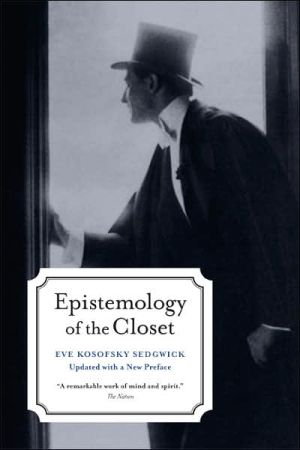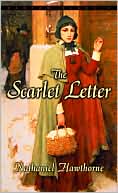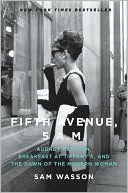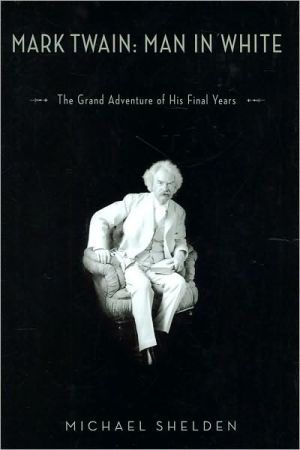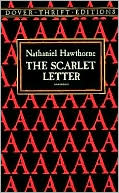Epistemology of the Closet
Since the late 1980s, queer studies and theory have become vital to the intellectual and political life of the United States. This has been due, in no small degree, to the influence of Eve Kosofsky Sedgwick's critically acclaimed Epistemology of the Closet. Working from classic texts of European and American writers—including Melville, James, Nietzsche, Proust, and Wilde—Sedgwick analyzes a turn-of-the-century historical moment in which sexual orientation became as important a demarcation of...
Search in google:
Since the late 1980s, queer studies and theory have become vital to the intellectual and political life of the United States. This has been due, in no small degree, to the influence of Eve Kosofsky Sedgwick's critically acclaimed Epistemology of the Closet. Working from classic texts of European and American writers--including Melville, James, Nietzsche, Proust, and Wilde--Sedgwick analyzes a turn-of-the-century historical moment in which sexual orientation became as important a demarcation of personhood as gender had been for centuries. In her preface to this updated edition Sedgwick places the book both personally and historically, looking specifically at the horror of the first wave of the AIDS epidemic and its influence on the text.Publishers WeeklyThe homosexual closet, by Sedgwick's yardstick, is ``the defining structure for gay oppression in this century.'' She disagrees strongly with those who separate gays and straights as ``distinct kinds of persons,'' with no common humanity. Her close readings of Melville's Billy Budd , Wilde's Dorian Gray and of Proust, Nietzsche, Henry James and Thackeray bristle with keen observations relating entrenched fears of same-sex relationships to contemporary gay-bashing and obvious displays of heterosexual or ``macho'' attitudes. But Sedgwick ( Between Men ) does not prove her overstated thesis that homo/hetero distinction obtains with gender, class and race in determining ``all modern Western identity and social organization.'' Obtuse, cumbersome, academic prose limits the appeal of this treatise. (Dec.)
Acknowledgments ixCredits xiPreface to the 2008 Edition xiiiIntroduction: Axiomatic 1Epistemology of the Closet 67Some Binarisms (I): Billy Budd: After the Homosexual 91Some Binarisms (II): Wilde, Nietzsche, and the Sentimental Relations of the Male Body 131The Beast in the Closet: James and the Writing of Homosexual Panic 182Proust and the Spectacle of the Closet 213Index 253
\ Publishers Weekly - Publisher's Weekly\ The homosexual closet, by Sedgwick's yardstick, is ``the defining structure for gay oppression in this century.'' She disagrees strongly with those who separate gays and straights as ``distinct kinds of persons,'' with no common humanity. Her close readings of Melville's Billy Budd , Wilde's Dorian Gray and of Proust, Nietzsche, Henry James and Thackeray bristle with keen observations relating entrenched fears of same-sex relationships to contemporary gay-bashing and obvious displays of heterosexual or ``macho'' attitudes. But Sedgwick ( Between Men ) does not prove her overstated thesis that homo/hetero distinction obtains with gender, class and race in determining ``all modern Western identity and social organization.'' Obtuse, cumbersome, academic prose limits the appeal of this treatise. (Dec.)\ \
